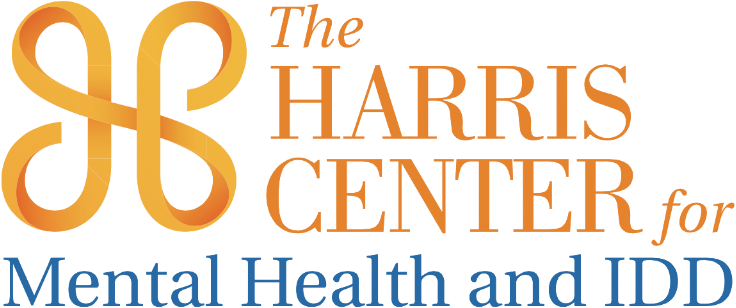
It’s normal to feel sad or down from time to time. People can get depressed in response to stressful life events such as the loss of a loved one, financial hardships, relationship difficulties or work-related stress. However, if these depressed thoughts persist and significantly impair a person’s daily life, this could be a possible sign of clinical depression, a serious mental health disorder that requires immediate treatment.
Depression is one of the most common mental health disorders in the United States. It is more common in women than men, but it still affects a significant number of men. According to the National Institute of Mental Health, an estimated 6 million men in the United States experience depression each year. Many men, unlike their female counterparts, are reluctant to talk about it, let alone seek medical help. There are many reasons behind their reluctance – which is something that we will address later in this article.
Research suggests depression is caused by a combination of biological, psychological and social sources of stress. For instance, men with a family history of depression may be more likely to develop depression compared to family members who do not have the illness. Furthermore, stressful life situations that I mentioned earlier may trigger depression in men. Sometimes, certain medications to treat illnesses such as diabetes, heart disease, or cancer may cause negative side effects that trigger or worsen depression.
While depression can affect anyone, extensive research has shown that there are differences in how depression presents in both men and women, and how they cope with depression. That is why it is critical to understand where men are coming from with regard to their depression, so families know how to help the men in their lives recover from their depression and feel whole again.
Differences between depression in men and women
In my experience as a psychologist practicing in both clinical and forensic settings with people who face the gamut of depressive symptoms from mild to severe and sometimes with psychosis, depression can be manifested differently between men and women. In men, for example, when they report symptoms of depression, they might refrain from describing their symptoms as “sad” or “depressed.” Men instead might report physical symptoms such as fatigue, restlessness, and loss of interest in activities or hobbies they typically enjoyed before.
While women can be more likely to openly express their feelings of sadness or hopelessness by explicitly talking about them, men on the other hand may be more likely to mask these emotions with other behaviors like anger, irritability, or substance abuse, which can make depression in men more difficult to recognize, diagnose, and treat.
Suicide is considered a hallmark symptom of major depression. There are noticeable differences in suicide rates and suicidal behaviors between men and women. While women more often have suicidal thoughts, four times as many men than women die by suicide. When men attempt suicide they tend to be more successful than women and tend to use more lethal methods to end their lives. Suicide is the seventh leading cause of death among men in general – and it’s a concern that needs our attention.
Sometimes people turn to substance abuse to handle their challenges. According to the Centers for Disease Control and Prevention (CDC), in 2020, 13 percent of adult men had an alcohol use disorder versus 9 percent of adult women. This is a large proportion of the male population in this country. Military veterans, regardless of what branch they served in, experience nearly twice the rate of alcohol and drug use as women. Substance abuse is certainly a serious mental health problem.
Why men might not seek help for depression
There are many reasons why men may be reluctant to get help for depression. One of the main reasons is societal expectations around masculinity, which can create a stigma around mental health issues.
Men are often socialized to be strong, self-reliant, and tough, and seeking help for emotional or mental health issues can be seen as a sign of weakness or vulnerability. This can make it more difficult for men to admit they are struggling and to seek help. Also, cultural variations can play a significant role as well.
In some cultures, men are socialized to be providers and caregivers for their family units, and less likely to consider their symptoms of mental health as being something worthy of their attention or treatment. They downplay and dismiss their symptoms, and tell themselves they need to get over it and be strong.
Men may also be less likely to recognize the symptoms of depression in themselves or to acknowledge they may need help. This is partly because the symptoms of depression may present differently in men than in women as previously discussed. Men may be more likely to attribute their symptoms to other causes, such as stress or physical health problems, rather than recognizing they are facing depression.
Men may also feel they do not have the time or financial resources to seek help when they need it.
How can families support loved ones with depression
It is important for families to support men struggling with depression by providing them with love, care, and understanding. Here are some ways families and friends can help them in their recovery.
- Listen to them. Be a good listener and allow them to express their feelings without judgment. Encourage them to talk about what is bothering them and help them find ways to cope. Often times, we tend to talk more but need to listen more in our daily interactions with others. By prioritizing listening, we can strengthen our relationships, open up new opportunities, and develop rapport that enables us to support loved ones without feeling the pressure to solve all their problems.
- Encourage them to see their primary care physician. Men may not think about their depression in the context of mental health. If they are feeling tired or irritable (typical signs of depression in men), they may be more willing to talk with their primary care physician (PCP). Low levels of testosterone and thyroid issues in men are highly associated with depression. A physical exam can rule out the physical causes that can play a role in depression. From there, the PCP may be able to encourage the patient to take the next step and connect with a mental health provider.
- Consult with a mental health professional. Depression is a treatable condition, and seeking professional help is important. At the The Harris Center for Mental Health, we offer therapies and treatments, in conjunction with medication, to help patients with depression, including cognitive behavioral therapy which is a type of psychotherapy that focuses on the relationship between a person’s thoughts, feelings and behaviors. CBT is one of the most evidenced-based psychological interventions for treating depression, anxiety disorders, and substance abuse. The Harris Center offers a service that is specific to substance use issues called the Substance Use Disorder Outreach Program (SUDOP), which includes chemical dependency counselors and “risk reduction kits” to support people in their recovery.
Click here for more Adult Behavioral Health Services at The Harris Center for Mental Health. - Be there to support and comfort them. If you have family, friends, or loved ones who are men, it’s important to actively listen to them, check in on their well-being, and offer your support and comfort whenever they need it. Showing you care goes a long way in helping them get better.
It is important to remember that seeking help for depression is a sign of strength, not weakness. If you or someone you know is experiencing symptoms of depression, it’s important to encourage them to seek help from a mental health professional. There are many effective treatments for depression, and with the right support and assistance, many people are able to recover and lead happy and fulfilling lives.




